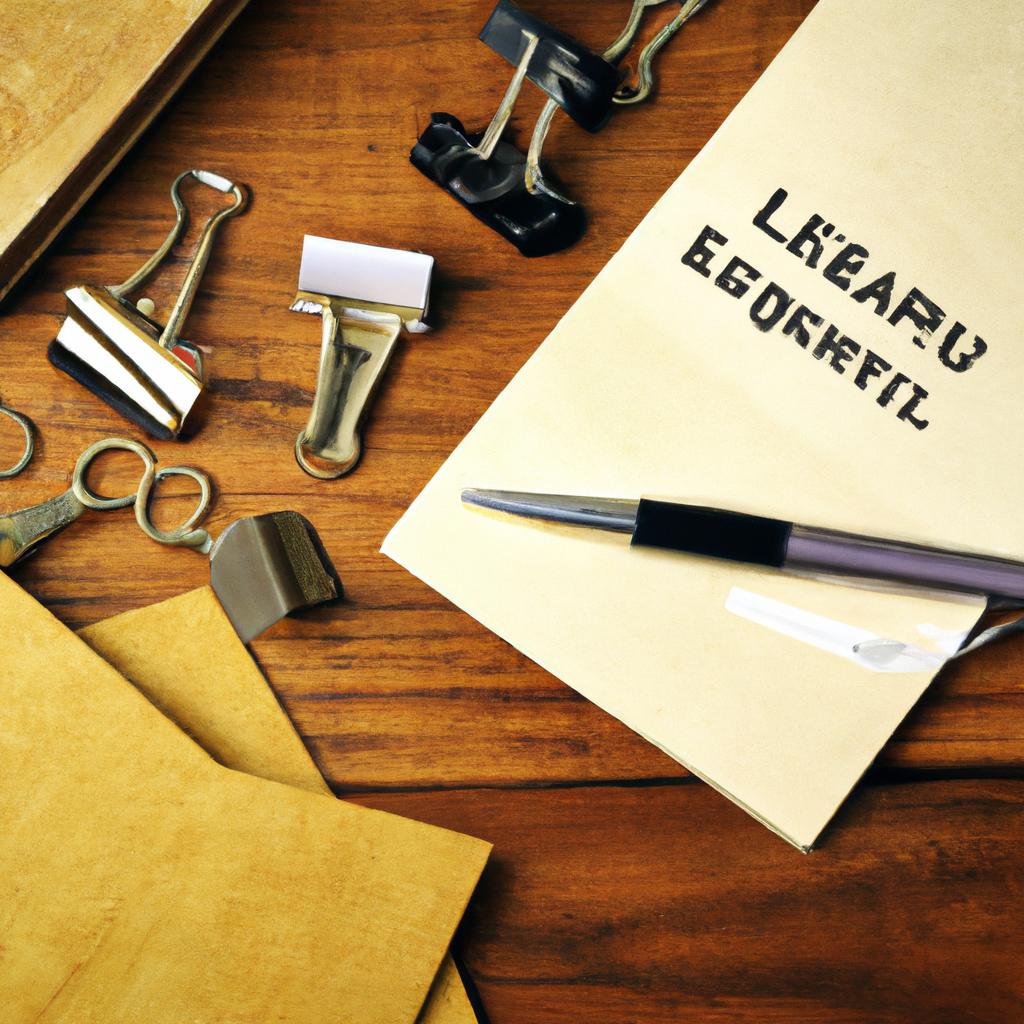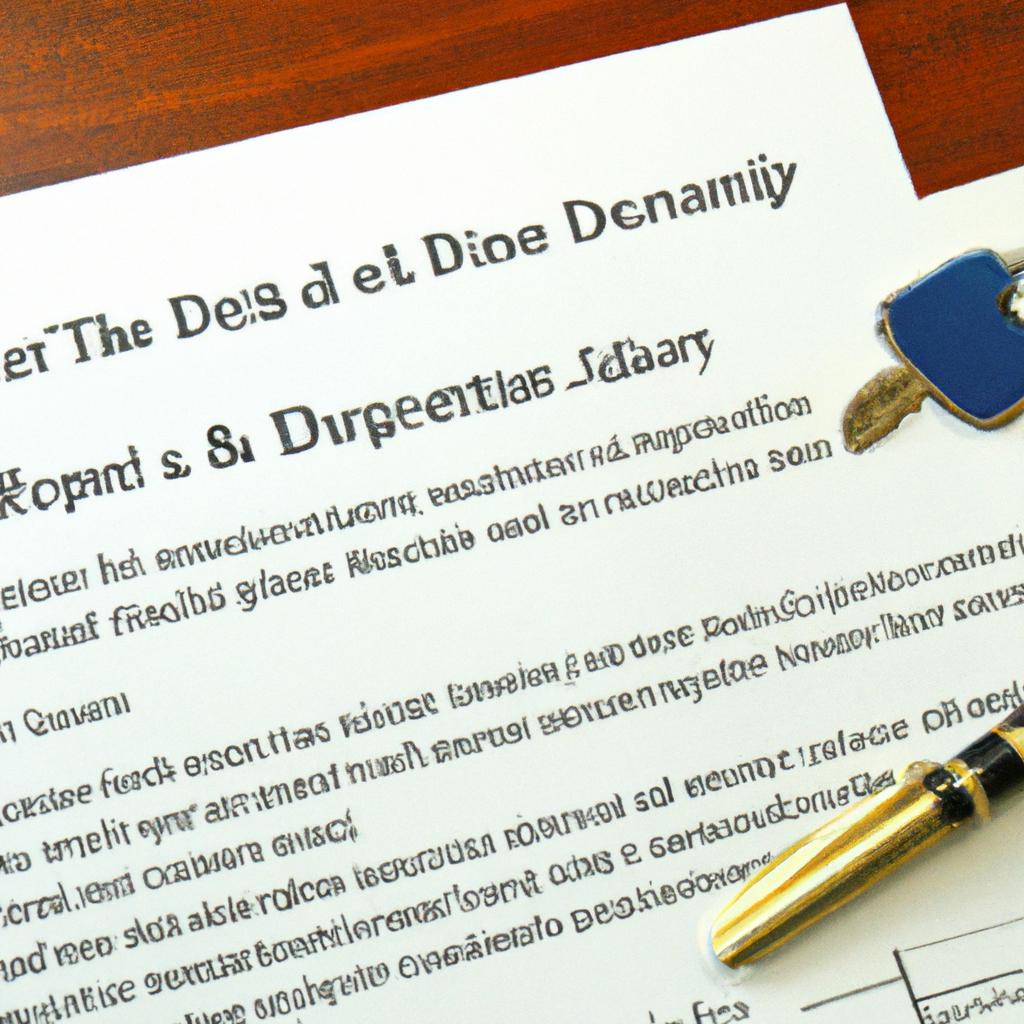Welcome to Morgan Legal Group, your trusted source for all things related to estate planning and property ownership. In the complex world of real estate transactions, obtaining a deed for a house is an essential process that can often be confusing and overwhelming. As experienced attorneys in New York City, we are here to guide you through the intricacies of acquiring a deed for your property with clarity and ease. In this article, we will explore the step-by-step process of obtaining a deed for a house, providing you with the knowledge and tools necessary to effectively navigate the legal landscape of property ownership.
Understanding the Importance of a Deed in Real Estate Transactions
In real estate transactions, having a deed is crucial as it serves as a legal document that transfers the ownership of a property from one party to another. Without a deed, there is no official record of who the rightful owner of the property is, which can lead to disputes, confusion, and legal issues down the line. Therefore, understanding the importance of a deed and knowing how to obtain one is essential for anyone involved in buying or selling real estate.
One way to get a deed for a house is through a title company or a real estate attorney. These professionals can help facilitate the transfer of ownership by preparing the necessary legal documents, including the deed. They will ensure that the deed is properly drafted, signed, notarized, and recorded with the county clerk’s office to make it official. By working with experts in the field, you can ensure that the process is handled correctly and securely, protecting your rights as a property owner.

Navigating the Legal Process of Obtaining a Deed for your Property
When it comes to acquiring a deed for your property, there are several important steps that must be taken to ensure that the process is completed legally and efficiently. One of the first and most crucial steps is identifying the type of deed that you need. There are different types of deeds, including warranty deeds, quitclaim deeds, and special warranty deeds, each serving a specific purpose in transferring ownership of property. It is essential to determine which type of deed is appropriate for your situation to avoid any complications down the line.
Another key aspect of obtaining a deed for your property is conducting a title search. This involves researching the property’s history to ensure that there are no outstanding liens, encumbrances, or other issues that could prevent the transfer of ownership. Additionally, it is important to draft a deed that complies with state and local legal requirements. This document must clearly outline the parties involved, the property being transferred, and the terms of the transfer. Working with an experienced real estate attorney can help ensure that all necessary steps are taken to successfully obtain a deed for your property.

Key Steps to Take When Applying for a Deed Transfer
Review the Current Deed: Before applying for a deed transfer, it is crucial to review the current deed of the property. Ensure that all information is accurate and up-to-date, including the legal description of the property and the names of the current owners.
Complete the Transfer Deed: The next step is to complete the transfer deed, which is the legal document that officially transfers ownership of the property from one party to another. Make sure to include all necessary information, such as the names of the parties involved, the legal description of the property, and any conditions or restrictions of the transfer.

Consulting with Experienced Real Estate Attorneys in New York City for Deed Acquisition
If you are looking to acquire a deed for a house in New York City, it is crucial to consult with experienced real estate attorneys who are well-versed in the legal intricacies of deed acquisition. At Morgan Legal Group, our team of skilled attorneys specializes in real estate law and can guide you through the process of acquiring a deed with precision and expertise.
When it comes to obtaining a deed for a house in New York City, it is important to consider the following steps:
- Research the property’s history and legal status
- Consult with a real estate attorney to understand the deed acquisition process
- Ensure all paperwork and documentation are in order
- Review and sign the deed with the assistance of legal counsel
Q&A
Q: What is a deed for a house?
A: A deed is a legal document that confirms the ownership of a property.
Q: How do I get a deed for a house?
A: You can obtain a deed for a house by transferring the ownership from the seller to the buyer through a formal process involving legal professionals.
Q: Can I get a deed for a house without buying it?
A: No, a deed is typically issued as part of a property transfer transaction, such as buying or inheriting a house.
Q: What information is included in a deed for a house?
A: A deed typically includes the names of the current and previous owners, a description of the property, and details of the transfer of ownership.
Q: How long does it take to get a deed for a house?
A: The timeframe for obtaining a deed can vary depending on the location and complexity of the transaction, but it usually takes a few weeks to process.
Q: What should I do if I lose the deed for my house?
A: If you lose the deed for your house, you can request a copy from the county clerk’s office where the property is located. It is important to keep a safe copy of your deed for future reference.
Q: Can I transfer a deed for a house to someone else?
A: Yes, you can transfer a deed for a house to another person through a legal process known as a property transfer or conveyance.
Q: Do I need a lawyer to get a deed for a house?
A: While it is not required to have a lawyer to obtain a deed for a house, it is strongly recommended to consult with a legal professional to ensure a smooth and legally binding transfer of ownership.
The Way Forward
As you navigate the process of obtaining a deed for a house, remember that patience and persistence are key. From researching property records to working with a title company, each step you take brings you closer to becoming the legal owner of your new home. By following these guidelines and seeking professional guidance when necessary, you will be well on your way to securing your piece of the American dream. Good luck on your journey to home ownership!
 Getting a deed for a house is an essential step in homeownership and can be a bit confusing for first-time buyers. A deed is a legal document that transfers ownership of a property from one party to another. It is an important piece of paper that serves as proof of ownership and allows you to sell, refinance, or transfer the property in the future. In this article, we will guide you through the process of getting a deed for your house, including the types of deeds, how to obtain them, and important things to consider. So, let’s get started!
Getting a deed for a house is an essential step in homeownership and can be a bit confusing for first-time buyers. A deed is a legal document that transfers ownership of a property from one party to another. It is an important piece of paper that serves as proof of ownership and allows you to sell, refinance, or transfer the property in the future. In this article, we will guide you through the process of getting a deed for your house, including the types of deeds, how to obtain them, and important things to consider. So, let’s get started!
Types of Deeds
There are different types of deeds that you may come across when purchasing or owning a house. The type of deed you need will depend on the type of property and the laws of your state. Here are the most common types of deeds:
1) Warranty Deed – This is the most common type of deed used in real estate transactions. It guarantees that the seller owns the property and has the right to sell it. A warranty deed offers the most protection to the buyer and includes warranties or promises from the seller that the property is free and clear of any encumbrances (liens, back taxes, etc.).
2) Quitclaim Deed – This type of deed transfers the rights of the seller to the buyer without any warranties or guarantees. It is often used in family transfers, divorce settlements, and to clear up title issues. However, it does not provide any protection to the buyer and should be used with caution when buying a property.
3) Grant Deed – This type of deed offers some warranty but not as much as a warranty deed. It guarantees that the seller has not transferred the property to anyone else and that there are no undisclosed encumbrances on the property.
How to Get a Deed for Your House
Now that you are familiar with the different types of deeds, let’s discuss the steps to getting a deed for your house.
1) Hire a Real Estate Lawyer – The first step is to hire a real estate lawyer to assist you with the deed process. While it is not mandatory, having a legal professional by your side can ensure that everything is done correctly and reduce the risk of future problems.
2) Search for Title Issues – Before transferring ownership, you should conduct a title search to ensure that the property is free of any liens or encumbrances. This will help avoid any complications with the transfer of ownership in the future.
3) Draft the Deed – Once you have completed the title search and resolved any issues, the lawyer will draft the deed. The deed should include the seller’s name, the buyer’s name, a legal description of the property, and the type of deed being used.
4) Sign and Notarize the Deed – Both the seller and the buyer must sign the deed in front of a notary public. This will make the deed official and enforceable in a court of law.
5) Record the Deed – Once the deed is signed and notarized, it must be recorded in the county where the property is located. This is usually done at the county recorder’s office and involves paying a recording fee. Recording the deed makes it a public record and provides evidence of your ownership in case of any future disputes.
Important Things to Consider
Getting a deed for your house may seem like a straightforward process, but there are important things to consider to ensure a smooth transaction. Here are some tips to keep in mind:
1) Make sure the seller has the right to sell the property. If the seller does not have the legal right to sell the property, the deed will not be valid. Conduct a thorough background check on the property and the seller to avoid any fraudulent transactions.
2) Consider title insurance. Title insurance protects you from any issues that may arise with the title of the property after the purchase. It is a one-time fee that can provide you with peace of mind and protect your investment.
3) Review the deed carefully. Before signing the deed, make sure to review it carefully and ensure that all the information is accurate. Mistakes on the deed can cause problems in the future and may require costly legal proceedings to resolve.
Benefits and Practical Tips
Now that you know the process of getting a deed for your house, here are some benefits and practical tips to keep in mind:
– Having a deed for your house provides you with legal proof of ownership and protects your investment.
– Always consult a real estate lawyer before purchasing a property or transferring ownership to ensure everything is done correctly.
– Keep a copy of the deed in a safe place, along with other important documents related to your property.
Case Studies and First-Hand Experience
To give you a better understanding of the importance of a deed and how it can impact your homeownership, here are some real-life examples:
– John and Emily purchased a house using a quitclaim deed, not realizing that there was a mortgage on the property. A few months later, they discovered that the previous owner had not paid the mortgage and the bank was foreclosing on the property. Since they did not have a warranty deed, they had to pay off the mortgage to keep the property.
– Sarah and Mike decided to transfer ownership of their house to their son using a quitclaim deed. The son’s name was not added to the title, and after Sarah and Mike passed away, the son had to go through a lengthy legal process to prove his ownership of the property. Had they used a warranty or grant deed, the process would have been smoother and less expensive.
In conclusion, getting a deed for your house is a crucial step in homeownership and should be done correctly to avoid any legal complications in the future. By understanding the types of deeds, the process of obtaining them, and important things to consider, you can secure your investment and enjoy your home with peace of mind.

